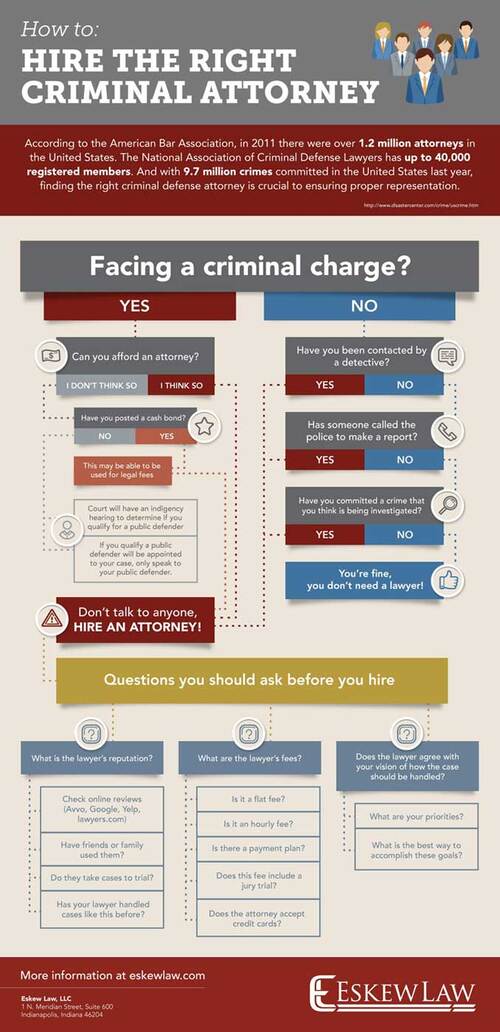Recognizing The Considerable Role That Evidence Plays In Criminal Defense Can Make A Considerable Distinction; Discover The Key Elements That Might Impact The Resolution Of Your Instance
Recognizing The Considerable Role That Evidence Plays In Criminal Defense Can Make A Considerable Distinction; Discover The Key Elements That Might Impact The Resolution Of Your Instance
Blog Article
Personnel Writer-George McCormack
When you consider criminal protection, evidence is often the first thing that comes to mind, and forever reason. It's the structure whereupon your case stands, shaping the narrative and influencing the jury's perception. Various sorts of proof, from physical to electronic, each play a special duty in establishing a protection. Yet not all evidence is treated equally; admissibility criteria can make or break your protection strategy. Understanding these subtleties is vital, particularly when taking into consideration how they can impact the result of a trial. So, what should you find out about these standards?
Kinds of Proof
When it comes to criminal defense, understanding the types of proof can make all the difference in your instance. https://www.npr.org/2022/06/16/1105291030/scotus-roe-v-wade-abortion-law falls under a number of classifications, each playing an essential duty in establishing the facts of your circumstance.
One usual kind is testimonial evidence, which includes statements made by witnesses. Their accounts can give understanding into what took place and can either sustain or challenge the prosecution's insurance claims.
Physical proof is another critical type, encompassing tangible items like tools, apparel, or finger prints. This sort of proof can straight connect you to a crime or help negate allegations against you.
Then there's documentary evidence, that includes documents, photographs, or any written materials pertinent to your situation. These files can supply a timeline or context that's crucial for your protection.
Finally, you can't neglect electronic evidence, that includes data from smartphones, computer systems, or social networks. This kind of evidence can expose crucial information regarding your tasks or communications.
Admissibility Specifications
In criminal protection, the admissibility of proof is essential to your case's result. You'll need to recognize the criteria that identify whether evidence can be utilized in court. Usually, evidence must be relevant, trusted, and acquired lawfully to be considered acceptable.
Significance suggests the proof must directly associate with the situation and help confirm or disprove a truth at issue. If it doesn't connect to your protection or the fees against you, it may be omitted.
Dependability makes sure that the evidence is reliable and trustworthy; as an example, eyewitness statement can be brought into question if the witness has a history of unstable accounts.
Furthermore, proof must be gathered in accordance with lawful treatments. Any evidence obtained with unlawful ways, such as an unlawful search or seizure, might be regarded inadmissible under the exclusionary rule.
Understanding these standards can equip you to work effectively with your attorney. They'll navigate the intricacies of these regulations to enhance your protection, ensuring only the best evidence is presented in your favor.
Constantly keep in mind, the admissibility of evidence can substantially influence the jury's assumption of your case.
Impact on Protection Approaches
The admissibility of proof directly shapes your protection approaches. When evidence is deemed admissible, you can utilize it to develop a strong situation. Alternatively, if evidence is ruled inadmissible, you require to pivot your approach. Comprehending what proof the prosecution can present aids you expect their disagreements and prepares you to counter them effectively.
You'll want to concentrate on celebration proof that supports your protection. This may include witness statements, professional testament, or papers that difficulty the prosecution's cases. The objective is to produce practical doubt psychological of the jurors. If particular pieces of proof are weak or controversial, you may take into consideration an approach that stresses other strong aspects of your situation.
Additionally, the type of evidence-- whether it's forensic, testimonial, or electronic-- will certainly determine how you interact your defense. You'll require to craft engaging stories that reverberate with the jury while making use of admissible proof to back up your claims.
Inevitably, your approach must be adaptable, allowing you to adapt as new evidence comes to light or as rulings are made. Each decision you make must align with the objective of ensuring the most effective possible end result for your instance.
Final thought
In criminal defense, proof plays an essential role fit your case. By recognizing the various types of proof and their admissibility standards, you can strengthen your protection technique and create sensible uncertainty psychological of jurors. Collaborating closely with your lawful counsel makes sure that your evidence exists effectively and adapts to any new advancements throughout the test. Ultimately, the best evidence can make all the distinction in accomplishing a favorable end result.
